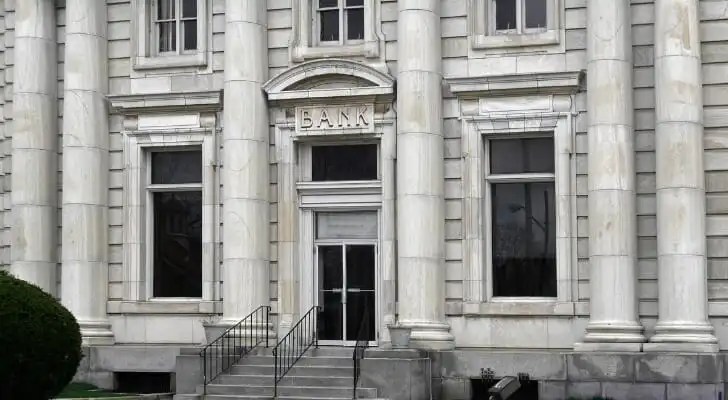Most banks are open for business Monday through Saturday. But occasionally you might show up at your bank on a weekday and find that the bank has been closed all day. Because most banks follow a federal holiday schedule, their branches may be closed for business on that day. There are usually 11 such bank holidays in the U.S. every year.
From picking a bank to selecting the services it offers, there are numerous factors to consider. A financial advisor can offer valuable guidance when it comes to dealing with banks.
What Is a Bank Holiday?
To answer this question, we’ll need to be a bit more specific. In the United Kingdom and in the Republic of Ireland, the term Bank Holiday has a legal definition, established by laws such as the Bank Holidays Act of 1871, the Bank Holiday Act of 1903 or the Banking and Financial Dealings Act of 1971.
In the United States, the term is more colloquial. It most closely resembles a federal holiday, which is a collection of 11 or sometimes 12 days of the calendar year in which all federal institutions close their doors. Most banks in the U.S. follow the same calendar as the U.S. Federal Reserve, which means the banks close on these holidays as well.
The United States technically has no national holidays, because the United States Congress only has the authority to establish holidays for federal institutions. In practice, though, most states recognize these federal holidays as state holidays as well.
What Are the U.S. Federal Holidays?

There are usually 11 federal holidays in each calendar year. They are New Year’s Day, Martin Luther King Jr. Day, George Washington’s Birthday, Memorial Day, Juneteenth, Independence Day, Labor Day, Columbus Day, Veterans Day, Thanksgiving and Christmas Day.
Banks across the country will most likely close their doors on these days, although there may be an exception here and there. Most banks choose to observe Presidents’ Day rather than George Washington’s birthday. Also, not every bank will close for Columbus Day. Every four years, Inauguration Day pushes this list up to 12. This is mostly for banks in Washington, D.C., as most businesses close for the day to reduce congestion caused by the actual inauguration ceremony.
Please refer to the below table to see the date that corresponds with each holiday.
| Holiday | 2025 Date | 2026 Date |
| New Year’s Day | January 1 | January 1 |
| Martin Luther King Jr. Day | January 20 | January 19 |
| Presidents’ Day (Washington’s Birthday) | February 17 | February 16 |
| Memorial Day | May 26 | May 25 |
| Juneteenth National Independence Day | June 19 | June 19 |
| Independence Day | July 4 | July 3 (observed) |
| Labor Day | September 1 | September 7 |
| Columbus Day/Indigenous People’s Day | October 13 | October 12 |
| Veterans Day | November 11 | November 11 |
| Thanksgiving Day | November 27 | November 26 |
How Bank Holidays Affect Transactions and Deposits
Bank holidays can delay certain banking transactions, especially those that require manual processing or interbank coordination. For example, if you initiate a wire transfer or schedule a bill payment on a federal holiday, the transaction may not process until the next business day. This delay can affect the timing of deposits, payments, and transfers, particularly for services like payroll, vendor payments or loan disbursements.
Direct deposits are also impacted by bank holidays. If your regular payday falls on a holiday, your paycheck may be deposited earlier or later than usual, depending on your employer’s processing schedule. While online and mobile banking services remain available during holidays, actions taken through these platforms, such as transferring funds between banks, may not be completed until the next business day.
To avoid missed payments or overdraft fees, it’s a good idea to check your bank’s holiday calendar and plan your transactions in advance. Setting up automatic payments a day or two before a known bank holiday can help you stay on schedule. If you’re unsure how a specific transaction will be affected, you can review the bank’s processing times or contact customer service for clarification.
What to Do If Your Bank Is Closed
In many cases, the bank holiday might correspond to a day you already have off from work; if you know such a day is coming up and you’ve got business to conduct at the bank, try to get your banking done in advance. And if you habitually visit a branch in person to do your banking, then make sure to mark these dates on your calendar. Once you know them in advance, you can plan ahead to ensure you never have any banking you have to do on a holiday.
If you find yourself in dire need of your bank on a holiday, then all hope might not be lost. Most banks have online banking services available to customers, so you may be able to do what you need to do on your computer or smartphone – from paying your credit card bill to making a transfer. If you just need cash from your bank account or need to deposit a check, you can simply head to an ATM; even those ATMs attached to a bank branch will usually be accessible on days that the branch is closed.
Bottom Line

Bank holidays in the U.S. tend to correspond to federal holidays. If you try to avoid doing any banking on these federal holidays then you shouldn’t have any problems. However, if you’re ever unsure about whether your bank is open or not, the most foolproof way to find out is just to give the bank a call or check the bank’s website.
Tips for Banking Responsibly
- Saving money isn’t always easy, but talking with a financial advisor can give you peace of mind that you’re on the right track. If you don’t have a financial advisor yet, finding one doesn’t have to be hard. SmartAsset’s free tool matches you with vetted financial advisors who serve your area, and you can interview your advisor matches at no cost to decide which one is right for you. If you’re ready to find an advisor who can help you achieve your financial goals, get started now.
- If you’d rather not have to worry about holidays or business hours, you might be better suited for online banking. Without having to travel to a traditional branch, you can conduct your business online in your own time. Plus, you’ll still be able to access a network of ATMs if you need cash.
- When dealing with any bank, it’s crucial that you make sure you’re not paying any sneaky fees. Unnecessary fees can cut into your savings and erase the benefits of using a bank in the first place. One way to avoid this is to look for a free checking account at your preferred bank. You can easily access your money without having to worry about losing any of it.
Photo credit: ©iStock.com/gmutlu, ©iStock.com/peterspiro, ©iStock.com/RossHelen
